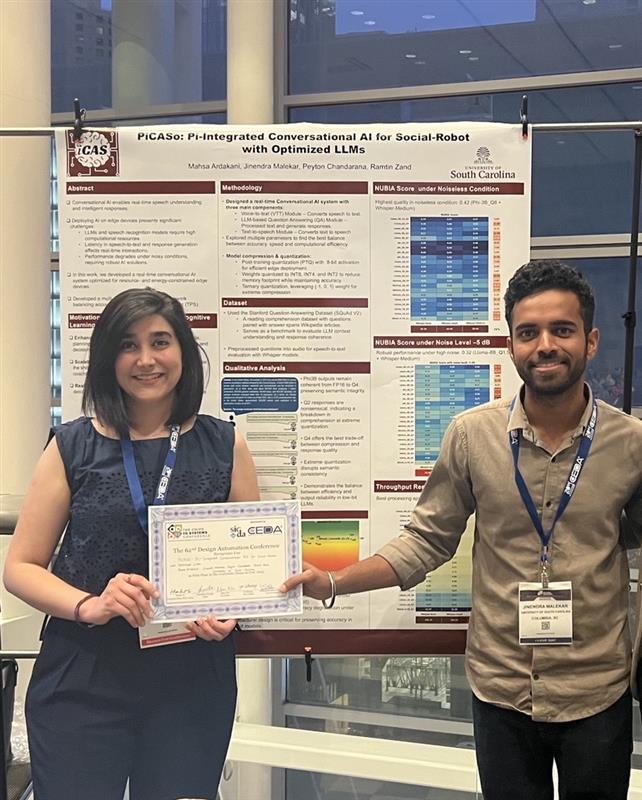 For the second year in a row, iCAS Lab has won the First Place Award in the University Demonstration competition at the DAC, The Chips to Systems Conference, recognized as the premier global event for chips to systems!
For the second year in a row, iCAS Lab has won the First Place Award in the University Demonstration competition at the DAC, The Chips to Systems Conference, recognized as the premier global event for chips to systems!
This year’s award-winning project was "PiCASo: Pi-Integrated Conversational AI for Social-Robot with. Optimized LLMS" led by Mahsa Ardakani and co-presented by herself and Jinendra Malekar, with contributions from Peyton Chandarana — all PhD students at the iCAS Lab directed by Dr. Ramtin Zand.
PiCASo is a fully integrated, voice-to-voice Conversational AI system that runs 𝘦𝘯𝘵𝘪𝘳𝘦𝘭𝘺 on a Raspberry Pi 5. It combines:
- Whisper for speech recognition
- Quantized LLMs for question-answering
- Piper for text-to-speech synthesis
Mahsa and Jinendra applied various post-training quantization (PTQ) strategies — including W2A8, W4A8, W6A8, W8A8 — for Gemma-2B, LLaMA-3B, Phi-3B, and LLaMA-8B, and utilized quantization-aware trained (QAT) BitNet models with Ternary weights and 8-bit activations to enable real-time, offline inference on resource-constrained hardware. This makes PiCASo ideal for education, accessibility, and other embedded AI applications.
Our work on LLM quantization was also presented at the 2025 IEEE/CVF Computer Vision and Pattern Recognition (CVPR) conference, and the paper is now available in the CVPR 2025 proceedings. "LLMPi: Optimizing LLMs for High-Throughput on Raspberry Pi". repo